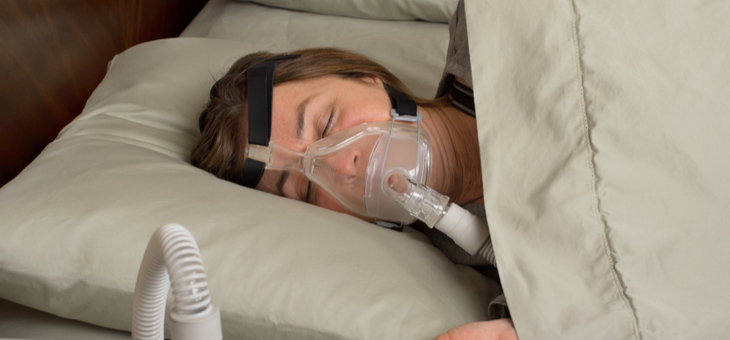Sleep is fundamental for human health. As we age, our body clock gradually changes, affecting our sleep. Melatonin, a hormone that is naturally produced in the body at night and helps promote sleep, decreases as we age, making it harder to get a good night’s sleep.
As we get older, our sleep patterns change and we are more susceptible to sleep conditions that affect the quality and amount of sleep we are getting and, as a result, our overall health. In 2016, a study found that one in four older Australians suffer from sleep apnoea.
Sleep apnoea has been strongly linked to various health problems and chronic diseases, which is why we need to take note of changes in our sleeping habits as we get older.
For older adults, the recommended sleep duration is seven to eight hours. Older people tend to take longer to fall asleep, sleep more lightly and spend less time in deep sleep. With a sleep condition such as sleep apnoea, these hours are disrupted causing health problems as well as an effect on productivity and mood.
Here’s how to identify the signs of sleep apnoea and the treatments that can help.
What is sleep apnoea?
Sleep apnoea reduces your breathing during sleep and can even cause long pauses in breathing, known as ‘apnoeas’. Breathing can stop from a few seconds to 90 seconds, causing you to wake up briefly. This happens when the airway of the throat is blocked, partially or completely. The interruption in your breathing is enough to disrupt your sleep and can occur throughout the night, with some people experiencing hundreds of disruptions a night. This can cause your body harm and it is best to seek treatment to help your body get the rest it needs.
Sleep apnoea ranges from mild to severe. If there are partial or complete obstructions, breathing is reduced or stopped for a short time – resulting in blood oxygen levels dropping. There is strong evidence showing that untreated moderate sleep apnoea can cause a number of health problems and affect your thinking, productivity and mood.
Who can sleep apnoea affect?
Sleep apnoea can affect anyone, but it is more commonly found in people who are older, people who snore, have diabetes, have hypertension, smoke and drink alcohol and who are overweight.
Does sleep apnoea get worse with age?
While sleep apnoea can occur in a person of any age, it does increase in prevalence as we get older. According to a study published by the American Thoracic Society (ATS), sleep apnoea occurs in only 3.2 per cent of adult men aged 20 to 44, compared with 11.4 per cent or men aged 45 to 64 and 18.1 per cent of men aged 61 to 100. According to the same study, higher rates of sleep apnoea in the elderly is believed to be caused by increased fat deposits in the areas surrounding the head and neck, lengthening of the soft palate, and changes in body structures surrounding the pharynx.
Post-menopausal women (typically women 55–60 and over) also run a higher risk of developing sleep apnoea, especially those undergoing hormone replacement therapy.
How is sleep apnoea diagnosed?
The signs and symptoms outlined can all suggest that you have sleep apnoea. However, the best way to test is an overnight study that measures your sleep, breathing, and oxygen levels.
How do you treat sleep apnoea?
For people with mild sleep apnoea, it could be as easy as losing weight or sleeping on your side. Effective treatments for mild sleep apnoea are weight loss, reduced alcohol consumption, not sleeping on your back and/or using a nasal spray.
Some pharmacies, including Blooms the Chemist, offer a sleep apnoea test that can be done in the comfort of your own home. At Blooms chemists, we download the data and send it to our sleep specialist doctors for review. If you have sleep apnoea, the results will explain the severity of your condition and recommended treatment options. Usually treatment involves trying out a CPAP machine, mask and accessories that will help you have a better night’s sleep and improve your quality of life.
Have you developed sleep problems or sleep apnoea as you’ve aged? Have you sought professional help? Have you worked to reduce the obvious risk factors?
Emmanuel Vavoulas is a pharmacist and head of retail at Blooms The Chemist.
If you enjoy our content, don’t keep it to yourself. Share our free eNews with your friends and encourage them to sign up.
Related articles:
https://www.yourlifechoices.com.au/health/your-health/sleep-disorder-linked-to-alzheimers
https://www.yourlifechoices.com.au/health/covid19/sleeps-vital-role-in-mental-resilience
https://www.yourlifechoices.com.au/health/your-health/how-safe-is-the-air-quality-in-your-home
Disclaimer: This article contains general information about health issues and is not advice. For health advice, consult your medical practitioner.

